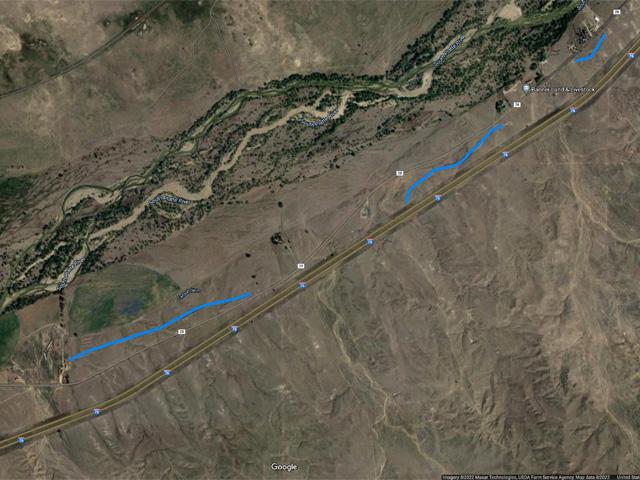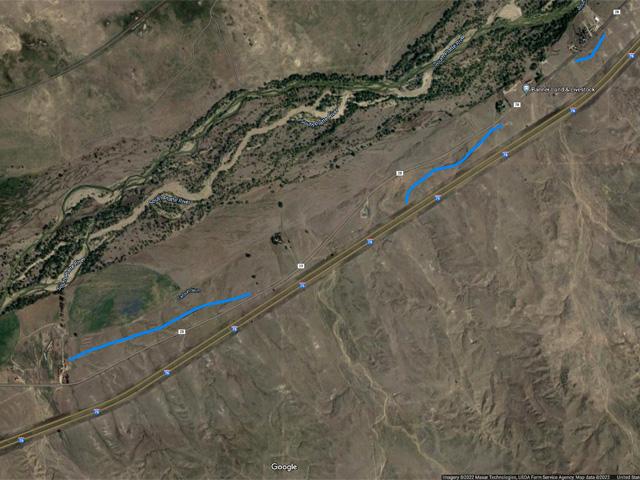Ag Policy Blog
Nebraska Governor Signs Bill to Build a Canal in Colorado
Nebraska Gov. Pete Ricketts on Monday successfully completed his push for legislation to build a canal that will run from Colorado into western Nebraska.
Ricketts signed legislation authorizing a $500 million canal meant to counter what Nebraska sees as attempts in Colorado to potentially hold back future water flows on the South Platte River. Nebraska will invoke a nearly 100-year-old clause in a water compact between the two states to dig out what is commonly called the Perkins County Canal. Nebraska lawmakers last week passed the bill, LB 1015, to back the canal project despite some concerns about its costs and possible legal battles ahead.
"Today, we enacted two key laws to strengthen Nebraska's water resources," Ricketts said in signing the bill. "LB 1015 helps protect the South Platte River water we depend on for drinking water, agricultural irrigation, and to nourish our natural environment."
Ricketts also signed a separate bill, LB 1023, that will create a 3,600-acre lake in eastern Nebraska, as well as fund some other recreational projects.
Ricketts began championing the Perkins County Canal early in the year, cautioning against plans for water projects in Colorado totaling nearly $10 billion. Ricketts told lawmakers at a hearing in February, "Colorado is looking to take our water." Ricketts said the canal is also a "hedge against drought" in western Nebraska as well.
Nebraska has a compact with Colorado that guarantees the state of Nebraska minimum flows of South Platte River water throughout the year.
"Water is vital to our state. Agriculture drives our economy," Ricketts told lawmakers at the February hearing. "It is the heart and soul of what we do. If we don't protect our water, we are undermining the very foundation of what our state economy is."
Kent Miller, general manger of the Twin Platte Natural Resources District out of North Platte, Neb., told DTN he's been urging Nebraska leaders for the last 25 years to invoke a clause in the South Platt River Compact to build the canal.
P[L1] D[0x0] M[300x250] OOP[F] ADUNIT[] T[]
"My concern is, with the development along the front range, and limited access to future water for folks on the front range, that we're going to start potentially seeing dried up South Platte River at the Nebraska border in the very near future," Miller said, acknowledging he's had that view for a quarter-century. "And my observation is, year, we are getting lower amounts of water. Have I studied that? No, but I'm also very aware of all of the people moving into the front range, and people take water."
Miller told DTN on Tuesday the next moves will include "planning, design and land purchase options in Colorado which is what was funded this year. Nebraska DNR will lead this with collaboration with the stakeholders in the basin which I will be a part of."
The Perkins County Canal project goes back to drought in the 1890s when desperate western Nebraska farm families started digging out a canal from the South Platte River in Colorado with plans to irrigate their thirsty crops. The canal needed to go about 65 miles, but the project was scrapped in 1895 after about 16 miles were dug out, according to a historical piece on the project in the North Platte Telegraph. In 1923, though, Nebraska leaders made sure to insert a clause in their water compact with Colorado to keep open the option for a canal.
Colorado's Water Plan is constantly updated to assess changing water conditions. The plan notes those that 80% of the state's water falls west of the mountains while 90% of the state's population lives east of the divide, or essentially on the front range of the Rockies.
Colorado in the past has often diverted mountain water to satisfy front-range cities, but that process has become more complex, especially given the demands in other western states for water from the Colorado River. As front-range communities face more opposition to Colorado River diversions, Nebraskans see water-thirsty communities eyeing the South Platte River.
In response to Nebraska's canal project, Colorado lawmakers introduced a bill that would prioritize storage projects in the South Platte River basin. That bill, however, was postponed indefinitely in committee.
Nebraska officials said Monday it would likely take close to a decade before the Perkins County Canal can be built.
Chris Clayton can be reached at Chris.Clayton@dtn.com
Follow him on Twitter @ChrisClaytonDTN
(c) Copyright 2022 DTN, LLC. All rights reserved.






Comments
To comment, please Log In or Join our Community .